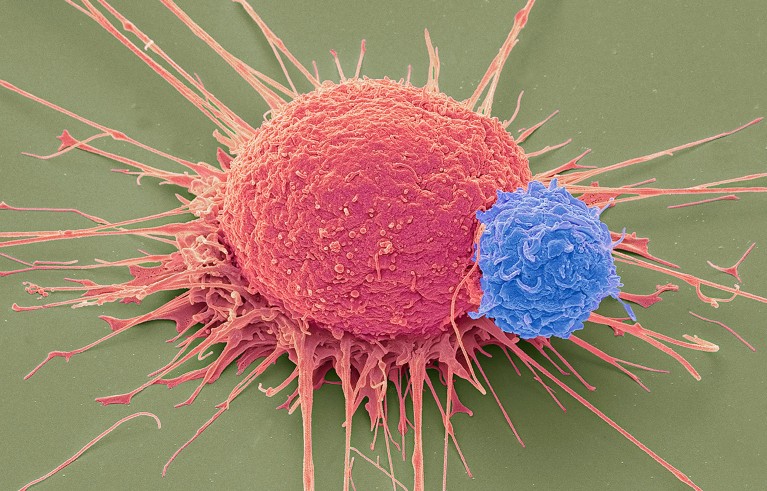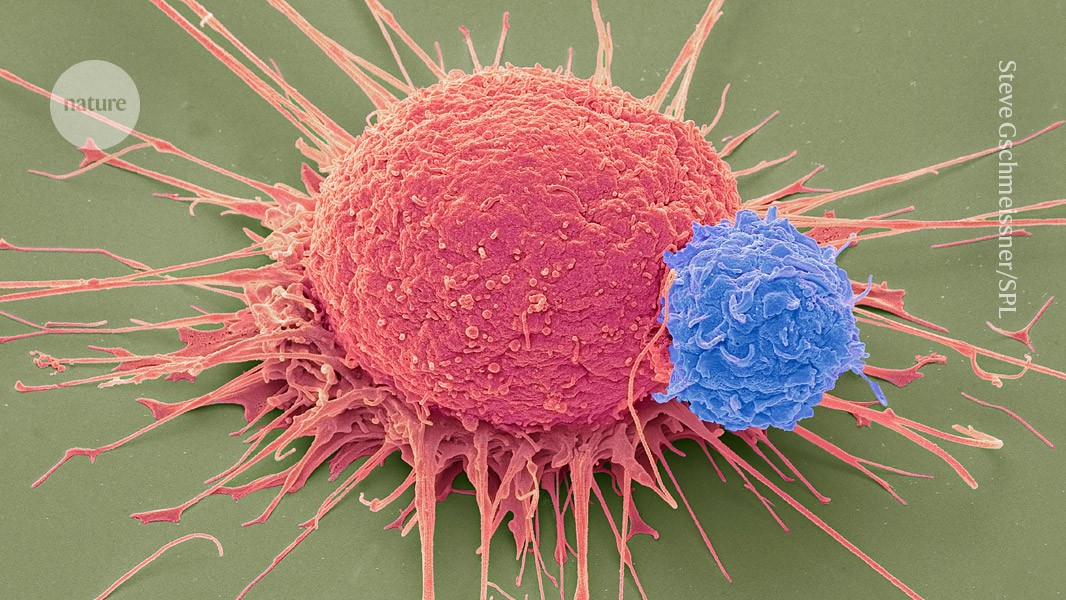
T cells (blue) attack a prostate cancer cell (pink) in this scanning electron micrograph image.
Credit: Steve Gschmeissner/Science Photo Library
A clinical trial using
engineered immune cells
to hunt cancer cells has reported impressive results for solid tumours, a type of cancer that is difficult to treat. Compared with standard treatments, the immunotherapy lengthened survival of people with cancer
1
.
The phase II clinical trial in China tested chimeric antigen receptor (CAR) T cells in people with advanced gastric cancer or gastro-oesophageal junction cancer, which are
solid tumours
. To create CAR-T-cell therapies, T cells are collected from a person with cancer and tweaked to produce proteins that target cancer cells. The T cells are then infused back into the same person. CAR-T-cell therapy has revolutionized cancer treatment but has been most
successful against blood cancers
.
“Solid tumours generally don’t respond well to CAR-T-cell therapy,” says Lisa Mielke, a cancer researcher at the Olivia Newton John Cancer Research Institute in Victoria, Australia. The latest results are one of the first times that CAR-T-cell therapy has had promising results against solid tumours. It provides “evidence that there is potential for CAR-T cells to be further optimized for future treatment of patients with solid tumors,” adds Mielke.
Last resort
The treatment, called satricabtagene autoleucel (satri-cel), targets CLDN18.2, a molecule expressed in large quantities in gastrointestinal tumors.
The trial included 156 participants, aged 18–75, who had received at least two unsuccessful treatments for advanced gastric or gastro-esophageal junction cancer and had tumour-tissue samples that were positive for CLDN18.2. Satri-cel was given to 88 people up to three times over the study period, along with a regimen that removed non-specific immune cells to make the treatment more effective. The remaining 52 people formed the control group, receiving standard therapies such as nivolumab, paclitaxel or rivoceranib.
Of the people treated with satri-cel, 35% responded to it, compared with just 4% of people receiving standard care. Those receiving CAR-T-cell therapy also lived an average of 2.4 months longer and were 31% less likely to die than the people in the control group.


